April 15, 2025 | 10:01 GMT +7
April 15, 2025 | 10:01 GMT +7
Hotline: 0913.378.918
April 15, 2025 | 10:01 GMT +7
Hotline: 0913.378.918
Central Retail is currently one of the retail chains effectively implementing activities to promote and consume Vietnamese farm produce in the international market.
Central Retail, a member of Thailand’s Central Group, is very professional in organising weekly farm produce for provinces and cities in Viet Nam after it held many programmes to sell Bac Giang lychee in recent years. Could you share with us the story about the programmes?
Central Group, with 72 years of experience in the retail sector, has understood very well that agriculture is one of the key areas of Viet Nam while the group decided to invest in Viet Nam since 2011.

Paul Le, Head of CSV (Creating Shared Values) Projects at Central Retail in Viet Nam Photo: CSV.
Consumption demand for fresh products and products from the nature in Viet Nam is very large. Viet Nam has many traditional farm produce and regional specialties from the south region to the north region and the farm produce changes depending on each season.
Understanding the great incentives from the nature and the agricultural tradition of Viet Nam, we identify the programme "Accompanying Vietnamese farm produce" as one of our seven strategic activities for sustainable development in Viet Nam.
Accordingly, the GO!/Big C supermarket chain, a member of Central Retail, has continuously made efforts to implement programmes such as purchasing farm produce directly from farmers and cooperatives without discount; organising Farm-produce Week at Go!/Big C supermarkets; supporting Vietnamese small and medium enterprises; connecting the consumption of farm produce to the modern retail chain of GO!/Big C and holding OCOP Week at GO!/Big C and Community Livelihood Programme.
After more than 2 years of focusing on directly purchasing of local farm produce, GO!/Big C supermarkets have accompanied with 139 cooperatives across the country, creating jobs for about 6,000 Vietnamese farmers and consuming 20,000 tonnes of local farm produce each year. Some typical cooperatives could be named as Hong Xuan Cooperative with Luc Ngan lychee in Bac Giang Province; and Ha Phong Cooperative with Cao Phong orange in Hoa Binh Province.
Currently, due to the impact of the COVID-19 pandemic, the export of farm produce is facing difficulties, directly affecting the farmers’ income. Therefore, Central Retail has been implementing programmes to support output settlement for farm produce in provinces of Bac Giang and Hai Duong. The most recent programme is "Lychee Festival". This is the first time we organise to stimulate demand for lychee on the e-commerce channel.
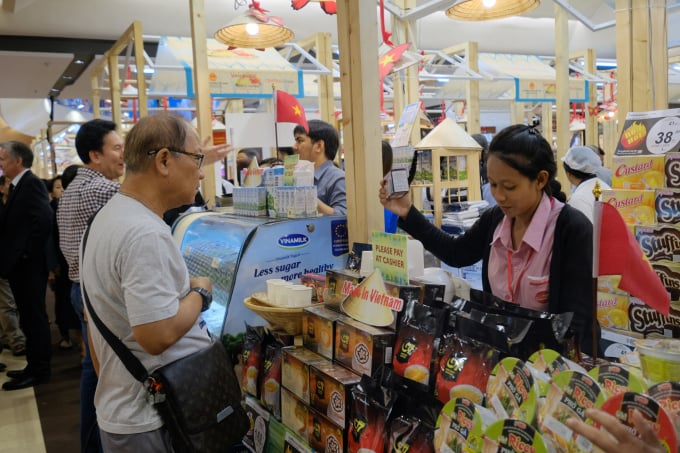
Thai customers visit Vietnamese farm-produce stalls at Viet Nam Week in Bangkok. Photo: CSV.
By the activities, I can confidently say that we have been one of the pioneering retailers in promotional activities for farm produce and specialties of Viet Nam.
When Central Group acquired shares of Big C supermarket from France’s Casino Group, many domestic farm-produce suppliers were worried that Vietnamese farm produce would be pushed off the shelves, but the reality proved otherwise. GO!/Big C supermarket system is one of the retail chains that consume Vietnamese farm produce in very large quantities. What do you think about it?
From the very first day we set foot in Viet Nam, our vision is to grow with Viet Nam, by co-operating and supporting Vietnamese products, Vietnamese brands and Vietnamese suppliers. The development of Central Retail will always go with the prosperity of Viet Nam.
We also understand the worries of the Vietnamese suppliers and time has relieved the worries and helped in building solid trust with Vietnamese partners. The rate of Vietnamese products always stays at 90 per cent at our supermarkets.
Our goal is very clear. The goal is together with Vietnamese suppliers to build and develop a modern retail system for Vietnamese people.
Can you tell us how the Central Retail promote and export of Vietnamese farm produce to Thailand and other markets?
Viet Nam trade promotion is also one of the key activities that Central Retail has developed and I am honoured to be one of the members participating in this activity from the very first day.
We have been working closely with the Ministry of Industry and Trade and the Ministry of Agriculture and Rural Development to carry out trade promotion activities, bringing the best and typical farm produce of Viet Nam to Thai consumers, typically, the series of annual event –Viet Nam Week in Thailand since 2016.
At the event, we had the opportunity to work with Vietnamese businesses to bring Vietnam's key farm produce such as dragon fruit, sweet potato, and lychee to Thailand as well as many other processed farm produces such as roasted cashew nuts, roasted coffee, tea, dried fruit, macadamia nuts and honey to introduce to Thai people and international tourists at a 6-star hotel in Bangkok.
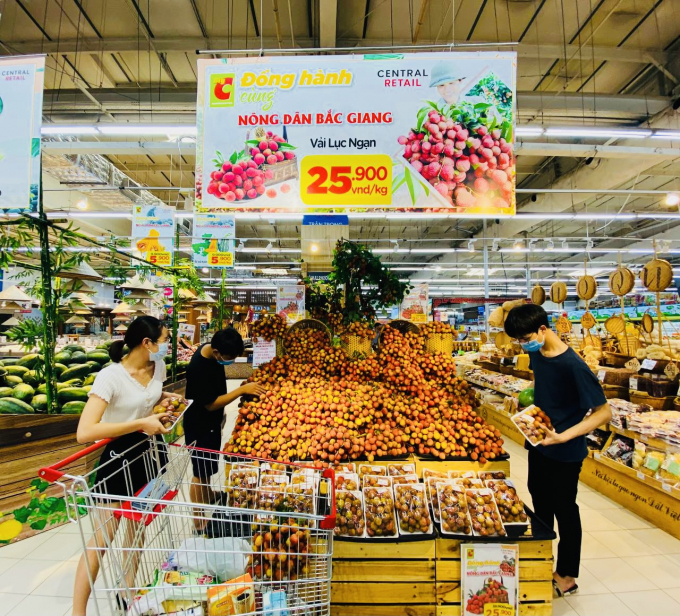
Central Retail is one of the retailers with great contributions in promoting and enhancing Vietnamese farm produce. Photo: CSV.
At the same time, we also organise seminars, connecting trade between Viet Nam and Thailand with the participation of Thai experts to guide Vietnamese suppliers to understand regulations and standards to bring the goods into our retail system in Thailand.
From the event, Vietnamese suppliers can understand the basic requirements for farming and developing farm produce in line with the requirements and trends of the Thai market as well as the global trends.
How do you evaluate the potential and advantages of Vietnamese farm produce to conquer the world?
This is a very interesting question and I believe that the person, who can give the best answer is the customer. My colleagues are still working closely with the suppliers every day, especially for the suppliers of fresh products to ensure to meet the increasing and rapidly changing needs of customers.
We consume hundreds of tonnes of vegetables, fruits, meat and fish every day. What our customers always asking for with farm produce is freshness and safety. Thus, the suppliers have improved the quality of farm produce a lot over the past time.
I am also one of the loyal customers of Central Retail’s supermarket chain. I can say that Vietnamese farm produce can compete directly with farm produce in countries that I have the opportunity to consume their farm produce while living and working there.
The first is the uniqueness, each product of Viet Nam has a very long history. For example, Thanh Ha lychee has a history of up to 250 years, which means that the farmers have up to 250 seasons to make the quality of the lychee better. That is the reason why Vietnamese lychees are among the best in the world.
Likewise, in some localities in the Central Highlands and northern mountainous areas of Viet Nam, cultivation has developed over hundreds of years to produce very distinctive and fresh fruit and vegetable.
Secondly, many big companies in the world have been setting up their supply networks in Viet Nam, to be able to access the best farm produce directly from local farmers. That's why I believe that Vietnamese farm produce is very good and have many competitive strengths.
Besides, Viet Nam needs to improve a lot in classification and calibration as well as design the products more eye-catching to build more attractive brands. By doing these things, I firmly believe that Vietnamese farm produce will successfully build a reputation in the international market.

(VAN) The Philippines is making efforts to diversify its rice import sources in order to reduce its dependence on Vietnamese rice. However, Vietnamese rice has managed to maintain its strong position in this market.
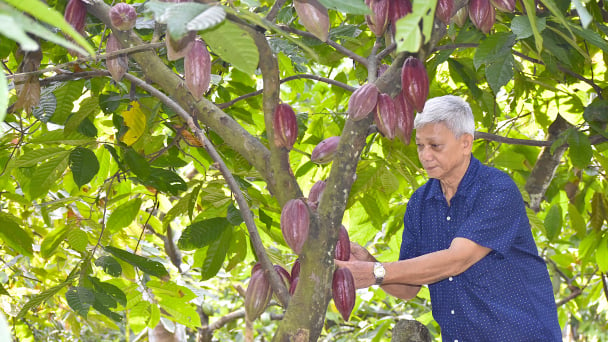
(VAN) In the Mekong Delta, cocoa has provided stable economic returns for many years. Recently, a surge in cocoa prices has created a strong incentive for farmers to expand their cultivation areas.
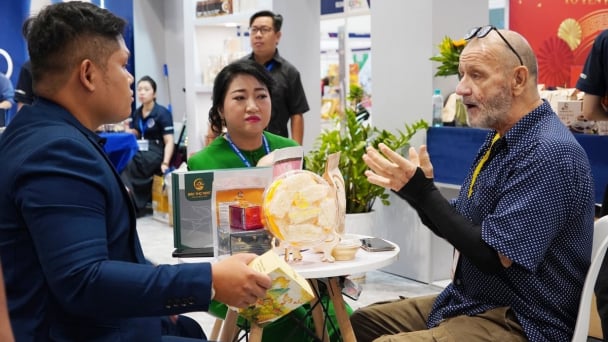
(VAN) Product quality, branding strategy, and technology innovation are key factors for Vietnamese bird’s nest to establish its foothold on the global map.
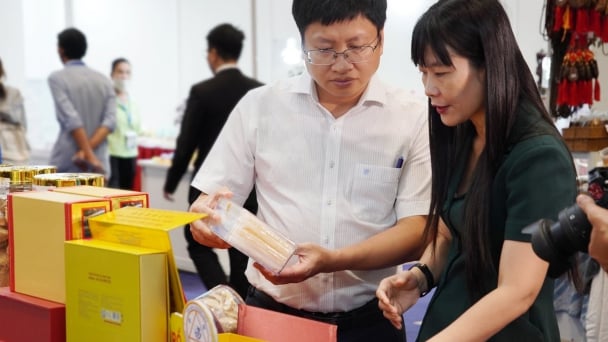
(VAN) KOCHAM Deputy President expects that Vietnam would accelerate innovation and development of bird’s nest-based products as a representation of Vietnamese culture.
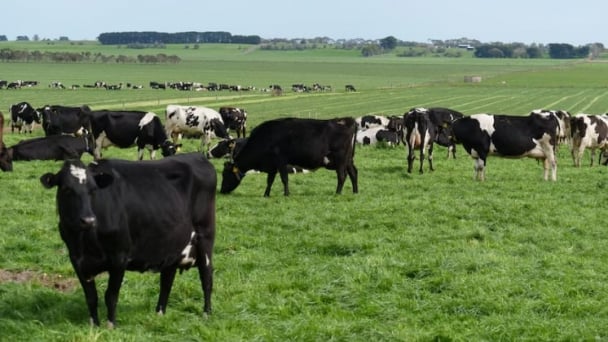
(VAN) Imported dairy products are weakening the local industry, according to dairy farmers and processors.
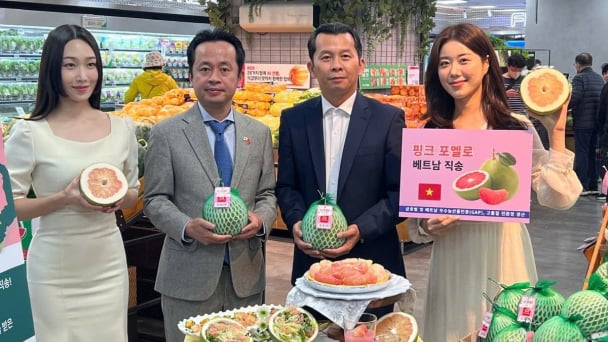
(VAN) April 10 marked a significant milestone for Vietnam's agricultural exports as Vietnamese pomelos officially became available at the Lotte Mart supermarket chain in South Korea.

(VAN) Vietnam is focusing on developing the legal framework and technical infrastructure for the carbon market, with committed support from global financial institutions.